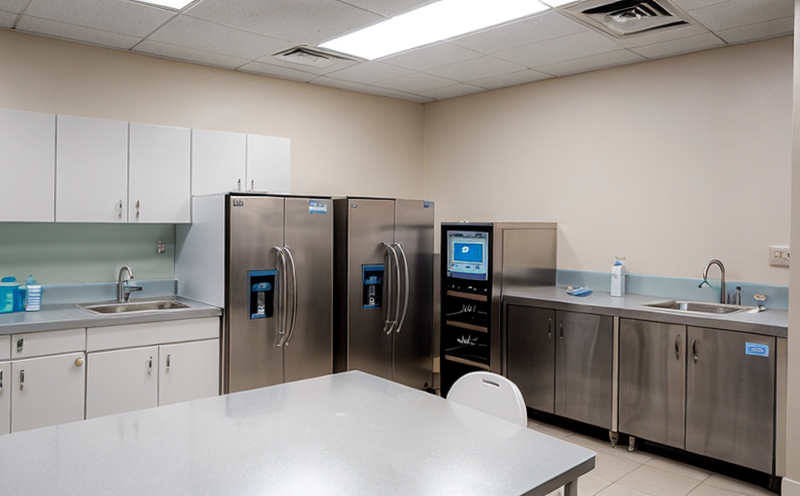ASTM F88 Seal Strength Testing
The ASTM F88 seal strength testing method is a critical procedure used to ensure that medical devices maintain their integrity and sterility under various conditions. This test evaluates the resistance of sealed packages, such as those containing sterile medical devices, to rupture or fail during storage and distribution.
Medical device manufacturers must comply with regulatory standards like ISO 11135 for sterilization validation, which often includes seal strength testing. ASTM F88 is particularly important in this context because it provides a standardized approach to measuring the mechanical integrity of sealed packages.
The test involves applying controlled pressure to the seal joint until it fails or reaches a specified load capacity. The goal is to determine if the package can withstand the forces encountered during handling and transportation without compromising sterility or structural integrity. This testing method ensures that medical devices remain sterile from production through distribution, thereby enhancing patient safety.
Seal strength testing also plays a crucial role in validating sterilization processes for medical devices. By ensuring that seals are strong enough to withstand the stresses of handling and transport, manufacturers can demonstrate compliance with relevant standards such as ISO 11607-2 and ANSI/AAMI ST79.
The ASTM F88 seal strength testing method is widely recognized in the medical device industry for its reliability and accuracy. It helps ensure that sealed packages remain intact under various environmental conditions, including temperature fluctuations, humidity, and physical stress. This is particularly important for devices used in critical care settings where any breach could have serious consequences.
To perform ASTM F88 seal strength testing effectively, it’s essential to follow the prescribed procedures meticulously. The test typically involves preparing sealed packages according to ISO 11607-2 specifications and then applying calibrated pressure until failure occurs or a specified load is reached. The results are recorded for analysis and comparison with acceptance criteria.
By adhering to ASTM F88 standards, manufacturers can demonstrate their commitment to quality and safety. This testing method provides valuable insights into the performance of sealed packages under real-world conditions, helping to identify potential weaknesses that could lead to contamination or device failure.
Benefits
- Enhanced Patient Safety: Ensures that medical devices remain sterile throughout their lifecycle, reducing the risk of infection and other complications.
- Regulatory Compliance: Meets international standards such as ISO 11607-2 and ANSI/AAMI ST79, helping manufacturers stay compliant with regulatory requirements.
- Increased Confidence in Packaging: Provides reliable data on the mechanical integrity of sealed packages, boosting confidence in packaging performance.
- Improved Process Efficiency: Identifies potential issues early in the production process, allowing for timely adjustments and improvements.
Why Choose This Test
- A standardized approach to seal strength testing ensures consistency across different manufacturers and facilities.
- The ASTM F88 method is recognized globally, providing a trusted framework for validating sterilization processes.
- It offers detailed insights into the performance of sealed packages under various conditions, helping to optimize packaging design.
- By using this test, manufacturers can demonstrate their commitment to quality and safety, enhancing brand reputation.
Customer Impact and Satisfaction
The ASTM F88 seal strength testing method has a direct impact on customer satisfaction by ensuring the highest standards of hygiene and safety. Customers can have confidence in the integrity of sealed packages, knowing that they meet rigorous international standards.
By choosing this test, customers benefit from increased reliability and performance, which translates to reduced risk of contamination or device failure. This not only enhances patient safety but also improves overall healthcare outcomes.
The results of ASTM F88 testing provide valuable data that can be used to improve packaging design and manufacturing processes. This continuous improvement process ensures that customers receive products that meet the highest quality standards.





